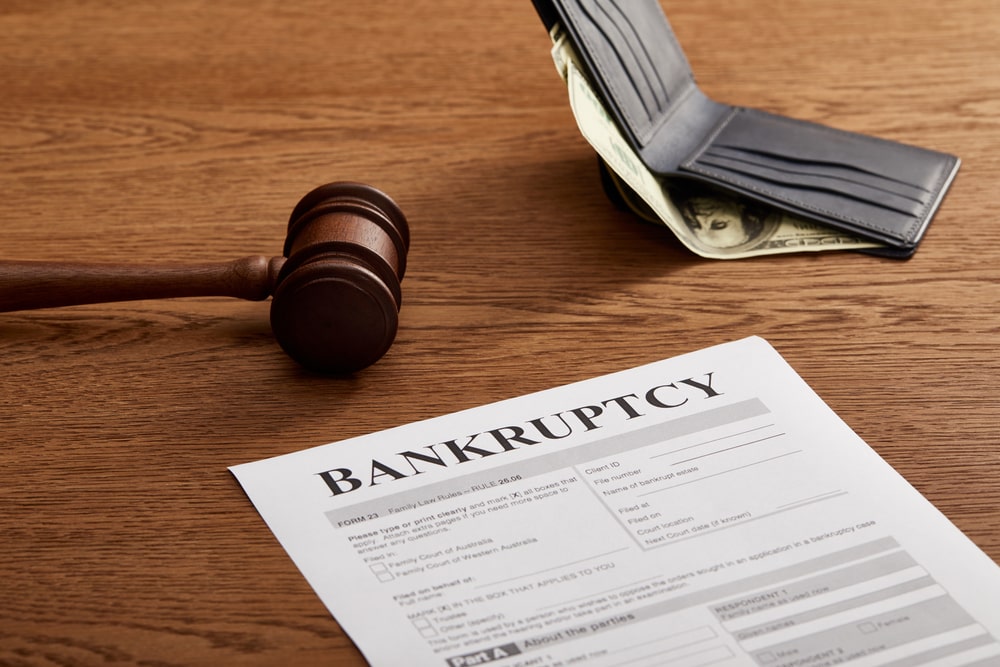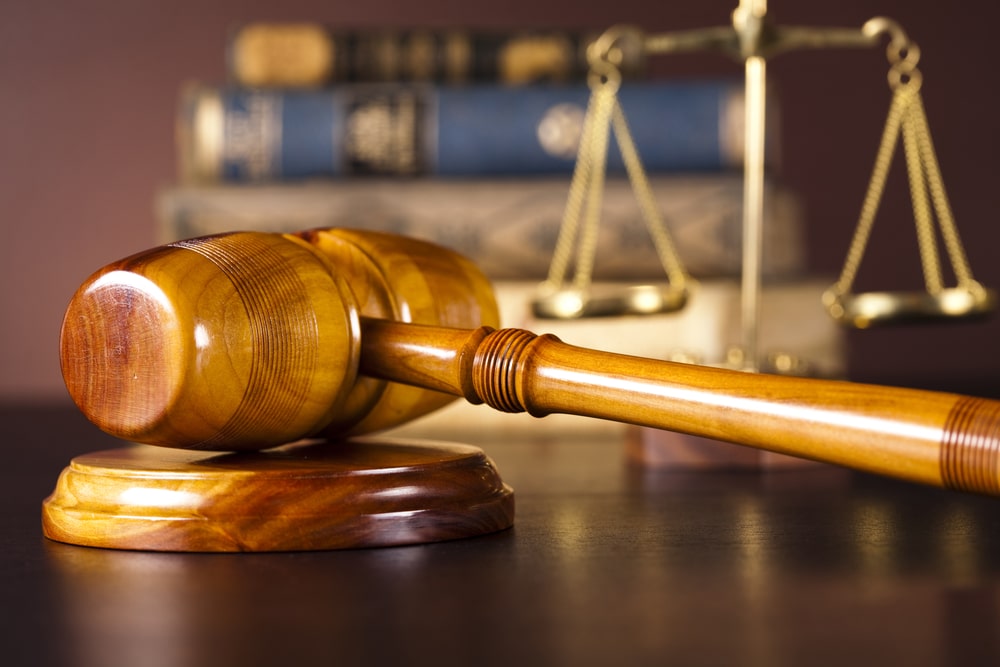Facing overwhelming debt can be stressful, but our knowledgeable Mesquite, TX bankruptcy lawyer can help you find a path forward. At Leinart Law Firm, we’ve dealt with thousands of bankruptcy cases, and our deep understanding of Texas bankruptcy regulations allows us to assist our clients in understanding their debt relief options. With a reputation for helping clients achieve financial stability, our firm is dedicated to supporting individuals and families during financial crises. If you’re seeking relief from mounting financial burdens, contact us today to speak with one of our trusted attorneys.
Bankruptcy Options Available To You
Filing for bankruptcy provides immediate relief from creditor harassment and financial pressures, but it can be a complicated process without a dedicated debt relief lawyer by your side. Upon filing for bankruptcy, an automatic stay goes into effect, halting collection efforts, wage garnishments, and foreclosure proceedings. This gives you the much-needed space to regain control and start fresh. But bankruptcy is not a one-size-fits-all solution. There are different types of bankruptcy filings, each designed to address specific financial situations.
Often referred to as liquidation bankruptcy, Chapter 7 allows individuals to discharge unsecured debts, like credit card balances and medical bills. This option works best for those with limited income and minimal assets. Chapter 13—also known as a reorganization bankruptcy—allows individuals to repay debts through a structured payment plan over three to five years. This option is ideal for those who wish to retain their assets while catching up on overdue payments.
While typically associated with businesses, Chapter 11 is another option for individuals with significant assets or income who require debt restructuring. Bankruptcy counselors can help you determine which type of filing is most suitable for your unique circumstances. By working with our Mesquite bankruptcy attorneys, we can help you reorganize your loans, negotiate with creditors, and potentially reduce the overall amount of debt you owe.
Common Misconceptions About Bankruptcy
Many people believe that filing for bankruptcy means losing everything. However, bankruptcy laws include exemptions that protect essential assets, such as your home, car, and retirement accounts. Additionally, filing for bankruptcy doesn’t permanently damage your credit. While it does have a short-term impact, it also provides an opportunity to rebuild your credit over time. Filing can remain on your credit report for up to 10 years, depending on the type of bankruptcy, but many clients find that the relief from debt outweighs the temporary credit impact.
Our compassionate Mesquite bankruptcy lawyers take the time to educate our clients on the realities of bankruptcy, empowering them to make informed decisions about their financial future. However, it’s important to note that financial recovery doesn’t stop at the initial filing. By working alongside our credit management attorneys, you will receive the resources you need to rebuild your financial health after bankruptcy. By learning how to establish a budget, use credit responsibly, and focus on savings, you can work toward a more stable financial future.
Let Us Help You Regain Financial Control
At Leinart Law Firm, we understand the emotional and financial toll debt can bring. With decades of experience and an unwavering commitment to client success, we provide compassionate and effective representation for our clients. From assisting with paperwork to representing our clients in court, we’re here to guide you through the entire bankruptcy process. Contact us today to schedule a consultation and take the first step toward a brighter financial future.
Which Bankruptcy Is Right For You
Deciding to file for bankruptcy is a significant financial decision that requires careful consideration. Bankruptcy can provide relief from overwhelming debt, but choosing the right type depends on factors such as income, assets, and financial goals. Understanding the differences between the available options can help determine the best path forward. For even more assistance, be sure to reach out to a Mesquite bankruptcy lawyer from our firm.
Chapter 7 Bankruptcy And Debt Discharge
Chapter 7 bankruptcy is often the best choice for those with limited income and significant unsecured debt, such as credit cards or medical bills. This process allows for the discharge of qualifying debts, giving individuals a fresh start. However, certain assets may be sold to repay creditors, depending on exemptions available under state and federal law. Those with minimal property and income below the state median typically qualify for Chapter 7. It provides a faster resolution, often completed within a few months, allowing individuals to move forward without the burden of unmanageable debt.
Chapter 13 Bankruptcy And Debt Repayment Plans
For individuals who have a steady income but are struggling to keep up with payments, Chapter 13 bankruptcy may be a better option. This type of bankruptcy allows debts to be reorganized into a structured repayment plan, usually spanning three to five years. It can help protect assets, such as a home or vehicle, by providing time to catch up on missed payments. Chapter 13 is often used by those who do not qualify for Chapter 7 due to higher income or who want to retain valuable assets while managing their debts.
Impact On Property And Assets
One of the main concerns when considering bankruptcy is how it will affect personal assets. Chapter 7 may require the sale of non-exempt property, while Chapter 13 allows individuals to keep their assets as long as payments are made under the court-approved plan. Exemptions may apply in both cases, helping protect necessary items like a primary residence, vehicle, and personal belongings. Reviewing exemption rules can help determine which type of bankruptcy offers the most protection based on individual circumstances.
Eligibility Requirements And Considerations
Each type of bankruptcy has specific eligibility requirements. Chapter 7 involves a means test, which compares income to the state median. Those who do not pass the means test may need to consider Chapter 13 instead. Chapter 13 requires a reliable source of income to make scheduled payments. Additionally, some debts, such as student loans, child support, and certain tax obligations, are not discharged through bankruptcy. Understanding these factors can help individuals make an informed choice. Your Mesquite bankruptcy lawyer will go over the details with you.
Moving Forward After Bankruptcy
Filing for bankruptcy provides an opportunity to rebuild financial stability. While it remains on a credit report for several years, responsible financial habits can help improve credit over time. Budgeting, timely bill payments, and careful financial planning can lead to a stronger financial future. Seeking professional guidance can also help make the process smoother and provide clarity on available options.
Choosing the right bankruptcy option depends on personal financial circumstances and long-term goals. Whether seeking debt relief through Chapter 7 or repayment through Chapter 13, understanding the process is essential. Mesquite bankruptcy lawyers at Leinart Law Firm can provide the legal support needed to explore options and find the best solution. Contact us today to discuss your situation and take the next step toward financial relief.
How Bankruptcy Affects Your Credit And How To Rebuild It
Filing for bankruptcy is a major financial decision that often comes with concerns about long-term credit impact. While it does affect credit scores, bankruptcy also provides a path forward when debt becomes unmanageable. Many people in similar situations wonder how long the impact lasts and what steps can help them recover. Below, we’ve outlined how bankruptcy influences credit and what we can do to rebuild it over time.
1. Bankruptcy Lowers Your Credit Score Temporarily
One of the immediate effects of filing for bankruptcy is a drop in credit score. The extent of the drop depends on your current credit standing, the amount of debt involved, and the type of bankruptcy filed. A Chapter 7 bankruptcy may stay on your report for up to 10 years, while Chapter 13 remains for about 7 years. This doesn’t mean you can’t access credit at all—it just means rebuilding will take time and consistency.
2. Credit Reports Will Reflect Your Bankruptcy Filing
All three major credit reporting agencies will show the bankruptcy on your report. This public record includes the filing date and the status of discharged accounts. Future lenders will be able to see this information, which may affect loan approvals or terms. However, the negative impact lessens as we rebuild credit and maintain a strong payment history moving forward.
3. Rebuilding Starts With Basic Financial Habits
Once the bankruptcy process is complete, rebuilding begins by re-establishing good habits. Paying bills on time, avoiding new debt, and sticking to a reasonable budget are key. Even small steps—like paying utility bills consistently—can reflect positively on your credit history over time. A Mesquite bankruptcy lawyer can offer their guidance.
4. Secured Credit Cards Can Help Restore Credit
One of the best tools for rebuilding credit after bankruptcy is a secured credit card. These cards require a cash deposit as collateral, which reduces the lender’s risk. Using the card for small purchases and paying off the balance each month helps rebuild a history of responsible use. Over time, this can lead to better credit options.
5. Monitoring Credit Reports Keeps Things On Track
Reviewing your credit report regularly helps spot errors and track your progress. After a bankruptcy discharge, it’s important to make sure that all included debts are marked as discharged. If incorrect information remains, it can be disputed with the credit bureaus. Keeping an eye on credit activity also prevents identity theft or unauthorized use.
6. Bankruptcy Can Actually Improve Debt-to-income Ratio
While it may seem surprising, filing for bankruptcy can improve your debt-to-income ratio once certain debts are discharged. This metric is often used by lenders to assess your ability to manage monthly payments. A lower debt load means more room to focus on rebuilding and future planning. A qualified Mesquite bankruptcy lawyer can explain how this might impact future financial decisions.
7. Patience And Consistency Make A Difference
Recovering from bankruptcy doesn’t happen overnight. Most people start to see credit improvements within a year or two, especially if they focus on managing current accounts well. Keeping balances low, avoiding unnecessary credit applications, and staying organized are all part of the process.
Bankruptcy provides a fresh start, but it’s what we do after that matters most. At Leinart Law Firm, we understand how overwhelming the process can feel. Attorneys like those at our firm have worked with many clients in similar situations. If you’re feeling unsure about your next financial steps, a Mesquite bankruptcy lawyer can help guide you through the process and help you regain control.
How Do I Rebuild Credit After Bankruptcy
Filing for bankruptcy can be a necessary step to reset finances, but it often leaves us wondering how to recover and rebuild credit. While bankruptcy may stay on our credit report for several years, it doesn’t mean we’re stuck. With some planning and consistent habits, it’s possible to improve our credit score and regain financial confidence. Below are answers to common questions many people ask after bankruptcy.
How Soon Can I Start Rebuilding Credit After Bankruptcy
We can start rebuilding credit right after the bankruptcy case is discharged. That’s typically a few months after filing, depending on whether it was Chapter 7 or Chapter 13. The key is to focus on paying bills on time, avoiding new debts we can’t manage, and being cautious about new credit offers. Even though our score may be lower at first, regular positive activity can start to make a difference within six to twelve months. A Mesquite bankruptcy lawyer can explain how the timing of discharge affects credit-building opportunities.
Should I Get A Credit Card After Bankruptcy
Yes, but it’s important to be selective. A secured credit card is often a good place to start. These cards require a deposit and are easier to qualify for than unsecured cards. We should use the card for small purchases and pay the full balance each month. This builds a positive payment history, which is one of the main factors in credit scoring. Some people also explore credit-builder loans through banks or credit unions to add more positive activity to their report.
Does Checking My Credit Report Help Rebuild Credit
Yes, reviewing our credit report helps us catch errors, track progress, and understand what lenders see. After bankruptcy, we want to make sure discharged debts are correctly marked and that no inaccurate information remains. We can request free credit reports from the major bureaus once a year. Fixing any mistakes and monitoring how accounts are reported gives us more control over rebuilding credit over time. A Mesquite bankruptcy lawyer may help us spot issues in the way creditors report discharged debts.
How Long Does It Take To Rebuild Credit After Bankruptcy
It depends on our starting point and how we manage new credit. Many people see small improvements within a year of discharge, especially if they stay current on bills and use credit wisely. It usually takes a few years to reach a strong score again, but progress is possible sooner with consistent effort. Over time, the impact of bankruptcy fades, especially if there’s a steady pattern of responsible behavior.
Can Bankruptcy Ever Help Improve Credit In The Long Run
In some situations, yes. If we were missing payments or dealing with high debt before filing, our score may already have been low. Bankruptcy can give us a clean slate and remove some of the worst entries from our report. Once debts are discharged, we can focus on building new, positive records. With discipline, we may end up in a stronger financial position than before we filed.
Getting back on track after bankruptcy takes patience and a clear plan. At Leinart Law Firm, we help people not only file for relief but also understand the steps to rebuild. If you’re looking for guidance from a Mesquite bankruptcy lawyer who understands both the legal process and life after bankruptcy, we’re here to support your next chapter.





